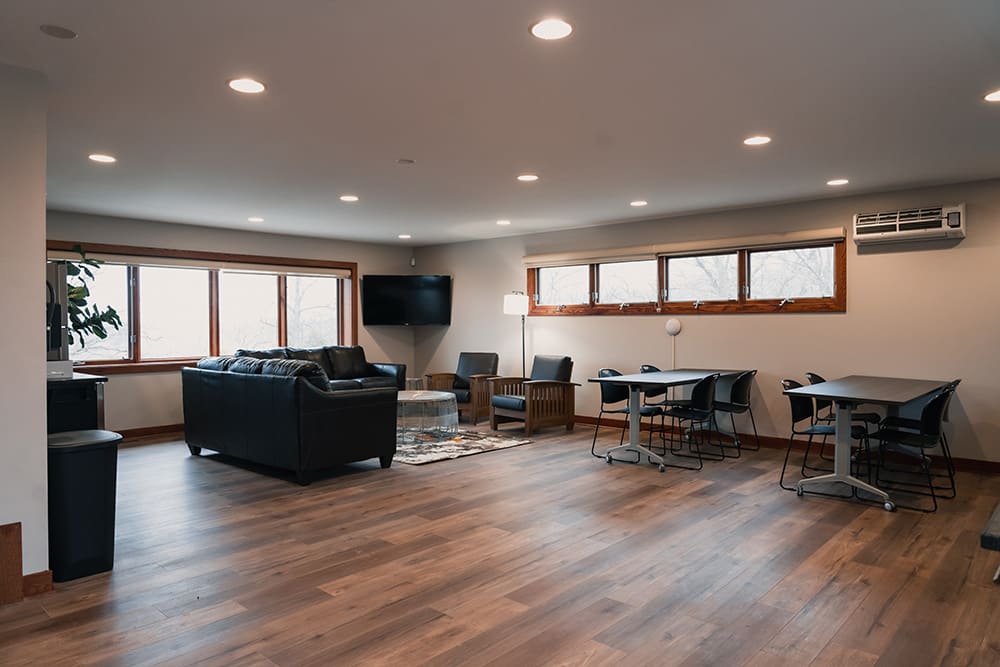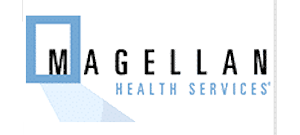Before enrolling in a treatment program, drug and alcohol detoxification is essential. Following a successful detox, our addiction specialists can help you determine which program would best fit your situation. Learn more about the addiction treatment programs we offer here at Northern Illinois Recovery Center.


Our Proven Treatment Process
Detox, also known as detoxification, is the process of clearing the body of alcohol or drugs that an individual has consumed. The main purpose of the detoxification process is to carefully manage withdrawal symptoms when an individual stops engaging in drug and alcohol abuse. It is essential to note that every individual has a different experience with detox due to how long the drug was used and which drug was consumed. Evaluation is the first step in which the medical team screens patients for mental and physical health issues and stabilization which will stabilize the patient with psychological and medical therapy.
Upon enrolling in our residential treatment center, clients commit to a 24/7 stay on our campus for approximately 30 days. The duration may vary depending on the client’s progress and unique challenges they face. Our team members will develop a customized treatment plan tailored to each client’s specific needs and strengths.
We offer ongoing empathy and support from both our clinicians and fellow residents, empowering clients to make lasting changes. Remember, you are not alone on this journey.
A partial hospitalization program is a type of treatment program that is more intensive than an intensive outpatient program (IOP). It is less intensive than a full inpatient program or a residential rehabilitation program. Compared to an IOP program, PHP requires more sessions and visits in a single week.
In a PHP program, the patient does not reside onsite at the actual facility during their treatment. There is freedom in choosing your own living arrangements.
Intensive outpatient programs (IOP) are addiction treatment programs utilized to address eating disorders, depression, addictions, and other dependencies that do not require round- the-clock supervision or detoxification. They empower patients to continue with their everyday lives in a way that residential programs do not. Residential programs require the patients to reside on-site, but at intensive outpatient programs, the patients can live at home. They are designed to help with relapse management, provide coping strategies, and establish support mechanisms.
Outpatient drug rehab in Illinois is less limiting than inpatient Illinois addiction treatment. It typically requires 10 to 12 hours a week spent at the treatment center. The sessions during this program are ideally focused on individual and group counseling, teaching those who are struggling with an addiction how to cope without the drug, and drug abuse education.
Outpatient drug rehab is flexible because it can be a great option for someone with a mild addiction or it can act as a part of a long-term addiction treatment program. Typically it lasts 3 – 6 months or over a year.
Sober living is a popular form of an aftercare program that has regularly been proven to assist individuals who still feel vulnerable to their addiction. Even after people are provided with the correct type of coping skills, they aren’t always fearless to jump into an unknown area. The main goal of a sober living program is to give recovering people struggling a bridge between treatment and going home.
Each treatment facility creates and provides its own set of rules that its residents must abide by. There is a zero-tolerance for relapse.
Trying to quit using drugs or alcohol while dealing with a co-occurring mental health disorder is especially challenging. This leads to needing a dual diagnosis treatment program. Mental health disorders and addiction commonly occur together, making treatment slightly more complicated.
Please reach out to the Northern Illinois Recovery Center in Crystal Lake, Chicago today to learn how our dual diagnosis treatment centers can support you throughout your recovery process.
A relapse prevention plan in an Illinois drug rehab treatment center is an essential tool for any individual in recovery. Utilizing a plan helps you to identify and recognize your own personal behaviors that could possibly point to relapse in the near future. It is also ideal in outlining an approach to get back on track and combat the same behaviors that were recognized.
Northern Illinois Recovery Center offers the most comprehensive care you can find in the region.
For some individuals, a tightly administered program like a partial hospitalization program or intensive outpatient program isn’t the best route for healing. In this instance, our outpatient treatment program can be a boon. Our counselors and therapists are made available on a regular basis as we work to schedule sessions around the individual’s calendar.
During outpatient care, you will have the flexibility of carrying out your day-to-day activities, such as taking care of your family or going to work.
Treatment Programs for Substance Abuse
Detox
Residential Treatment
Upon enrolling in our residential treatment center, clients commit to a 24/7 stay on our campus for approximately 30 days. The duration may vary depending on the client’s progress and unique challenges they face. Our team members will develop a customized treatment plan tailored to each client’s specific needs and strengths.
We offer ongoing empathy and support from both our clinicians and fellow residents, empowering clients to make lasting changes. Remember, you are not alone on this journey.
Partial Hospitalization Programs (PHPs)
A partial hospitalization program is a type of treatment program that is more intensive than an intensive outpatient program (IOP). It is less intensive than a full inpatient program or a residential rehabilitation program. Compared to an IOP program, PHP requires more sessions and visits in a single week.
In a PHP program, the patient does not reside onsite at the actual facility during their treatment. There is freedom in choosing your own living arrangements.
Intensive Outpatient Program (IOP)
Outpatient Program
Outpatient drug rehab in Illinois is less limiting than inpatient Illinois addiction treatment. It typically requires 10 to 12 hours a week spent at the treatment center. The sessions during this program are ideally focused on individual and group counseling, teaching those who are struggling with an addiction how to cope without the drug, and drug abuse education.
Outpatient drug rehab is flexible because it can be a great option for someone with a mild addiction or it can act as a part of a long-term addiction treatment program. Typically it lasts 3 – 6 months or over a year.
Sober Living
Sober living is a popular form of an aftercare program that has regularly been proven to assist individuals who still feel vulnerable to their addiction. Even after people are provided with the correct type of coping skills, they aren’t always fearless to jump into an unknown area. The main goal of a sober living program is to give recovering people struggling a bridge between treatment and going home.
Each treatment facility creates and provides its own set of rules that its residents must abide by. There is a zero-tolerance for relapse.
Dual Diagnosis Treatment Programs in Illinois
Trying to quit using drugs or alcohol while dealing with a co-occurring mental health disorder is especially challenging. This leads to needing a dual diagnosis treatment program. Mental health disorders and addiction commonly occur together, making treatment slightly more complicated.
Please reach out to the Northern Illinois Recovery Center in Crystal Lake, Chicago today to learn how our dual diagnosis treatment centers can support you throughout your recovery process.
Relapse Prevention
A relapse prevention plan in an Illinois drug rehab treatment center is an essential tool for any individual in recovery. Utilizing a plan helps you to identify and recognize your own personal behaviors that could possibly point to relapse in the near future. It is also ideal in outlining an approach to get back on track and combat the same behaviors that were recognized.
Northern Illinois Recovery Center offers the most comprehensive care you can find in the region.
Outpatient Drug Addiction Rehab Center
For some individuals, a tightly administered program like a partial hospitalization program or intensive outpatient program isn’t the best route for healing. In this instance, our outpatient treatment program can be a boon. Our counselors and therapists are made available on a regular basis as we work to schedule sessions around the individual’s calendar.
During outpatient care, you will have the flexibility of carrying out your day-to-day activities, such as taking care of your family or going to work.
Insurance Verification






Northern Illinois Addiction Treatment Programs
Our treatment facility can truly offer clients an optimal way to recover. The location of our Northern Illinois addiction treatment center provides a more relaxing environment than one crammed into a major city. At the same time, we can still employ a team of addiction treatment professionals who are among the best in their respective fields. Our clients work with world-class specialists in a relaxing environment with minimal distractions.
The following treatment options are combined evidence-based treatments and holistic strategies:
CBT is one of the most effective and widely used talk therapies for substance use disorder treatment and mental health treatment. It is a method that identifies how and why individuals hold negative self-images and other unhealthy perceptions that lead them to abuse substances. By learning to recognize this type of negative thinking, those involved in CBT either in one-on-one treatment or in a group session discover how to rectify their thinking to encourage healthy actions.
DBT is a form of cognitive behavioral therapy that focuses on understanding one’s motivations and learning to see how thoughts lead to actions. Doing so allows those engaged in DBT to turn away from harmful actions and toward positive, healthy ones. It is a therapeutic approach that encourages mindfulness, improves emotional regulation, and strengthens a person’s ability to understand and communicate with others.
For many people, family is at the core of their life. Thus, it makes sense to explore how family interactions or dynamics, generational trauma, and family expectations impact substance use disorder. Working with individuals to explore their family history and relationships and, in some cases, with other family members, those struggling with addiction identify where they need support, how to provide healthy support, and how to address issues that may trigger a relapse.
A common feature in most addiction treatment programs is group work. This is done for several reasons. First, hearing the stories of others who have gone through similar experiences can help others understand what they must do to heal and approach their unique issues.
Second, sharing with others allows individuals to unburden themselves and get the support and direction necessary to heal. Lastly, group sessions lay the foundation for building a supportive community and other relationships once treatment concludes. Doing so helps individuals maintain their sobriety while contributing to helping others; this mix of responsibility and accountability greatly reduces the chances of relapse.
A holistic therapy like yoga looks to explore the connections between an individual’s body and spirit. For some, this therapeutic approach not only helps them enhance their physical health but improves their mindfulness, allowing them to address and overcome anxiety and triggers.
For some, harsh events, either in the distant or recent past, can cause severe distress in the present. In this therapy, individuals learn how to identify trauma and see how it has affected their decisions and actions. Then, clients heal with a deeper awareness of their needs and how everyday events impact them due to their trauma.













